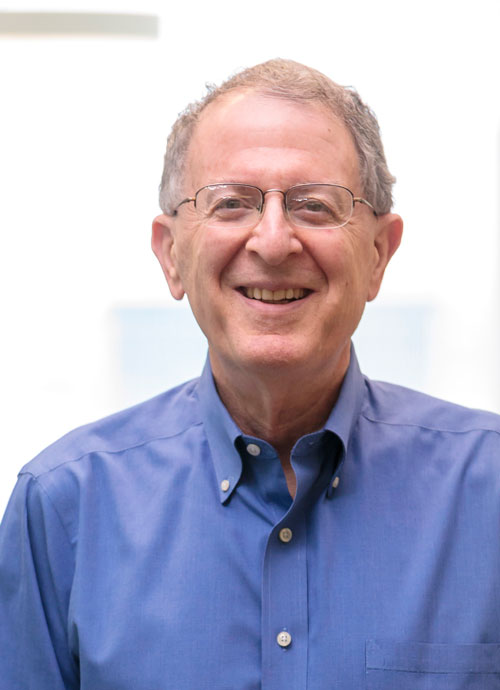Gordon receives Albany Prize
One of 3 researchers honored for their research on how microbiomes function

Gordon
Jeffrey I. Gordon, MD, the Dr. Robert J. Glaser Distinguished University Professor and director of the Edison Family Center for Genome Sciences & Systems Biology at Washington University School of Medicine in St. Louis, has been recognized with the 2023 Albany Medical Center Prize in Medicine and Biomedical Research. Gordon shares this year’s award — given Thursday, Oct. 5, at a ceremony in Albany, N.Y. — with Bonnie L. Bassler, PhD, of Princeton University; and Dennis L. Kasper, MD, of Harvard Medical School.
The scientists’ work has provided fundamental new insights about how our microbiomes — the complex and dynamic communities of microorganisms and their vast arsenal of microbial genes that inhabit different locations in our body — function to shape many aspects of our normal physiology, and in certain circumstances contribute to diseases. The microbiome field has experienced explosive growth, illustrated by the array of publications dedicated to it; the number of microbiome programs created in universities, pharma, and biotech companies; and the microbiome’s growing focus in private and charitable organizations.
“It is a great honor to be recognized together with my esteemed colleagues,” Gordon said. Widely regarded as the father of the field of microbiome research, Gordon received this award for his pioneering work on how variations in gut microbial communities affect health and disease — including the nutritional status of infants and children living in low-income countries — and how this knowledge can yield new approaches for treating the global health challenge of malnutrition. Bassler was recognized for her seminal studies of how bacteria communicate with one another, and Kasper for his discoveries of how the microbiome modulates the activities of the immune system.
In 2000, the Marty and Dorothy Silverman Foundation dedicated $50 million to award the Albany Prize annually for 100 years. According to the foundation, the award is intended to encourage and recognize extraordinary and sustained contributions to improving health care while promoting innovative biomedical research. Forty-eight investigators previously won this award, including three Nobel Prize winners and 10 recipients who went on to win the Nobel Prize.
“Jeff Gordon’s work is motivated by the pressing challenge of improving nutritional status during this period of marked population expansion, myriad challenges to sustainability, increasing health and economic disparities, and geopolitical disruptions,” said David H. Perlmutter, MD, Washington University’s executive vice chancellor for medical affairs and the George and Carol Bauer Dean of the School of Medicine. “Advancing understanding of the role of the gut microbiome in regulating many aspects of human physiology holds the promise of evolving our view of human nutrition by establishing connections between the foods we consume and how they affect health status.”
Gordon’s work has involved collaborations with investigators working in low and middle-income countries. He and his collaborators have shown how disruption of the development of the gut microbial community in infants and children can contribute to malnutrition. The principal and most impactful collaboration — one spanning more than a decade — has been with Tahmeed Ahmed, MBBS, PhD, Director of the International Centre for Diarrhoeal Disease Research, Bangladesh.
They have developed specific therapeutic food formulations — designed with knowledge of how their ingredients nurture the activities of beneficial gut microbes — that can repair the microbiomes of children suffering from malnutrition and help restore their healthy growth. Gordon and his team emphasize the importance of developing therapeutic foods that are also affordable, sustainable and culturally acceptable to local communities.
Since he established his lab, Gordon has served as mentor to 146 doctoral students and postdoctoral fellows. A number of his trainees have become key leaders in human microbiome research.
Gordon has received numerous honors for his extraordinary contributions to the field. Most recently, he was the recipient of the inaugural David and Beatrix Hamburg Award for Advances in Biomedical Research and Clinical Medicine, a newly established honor from the National Academy of Medicine; the Dr. Paul Janssen Award for Biomedical Research; and the Princess of Asturias Award for Technical and Scientific Research, which is among the most prestigious honors in the Spanish-speaking world.







